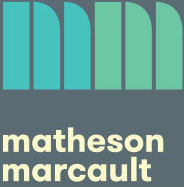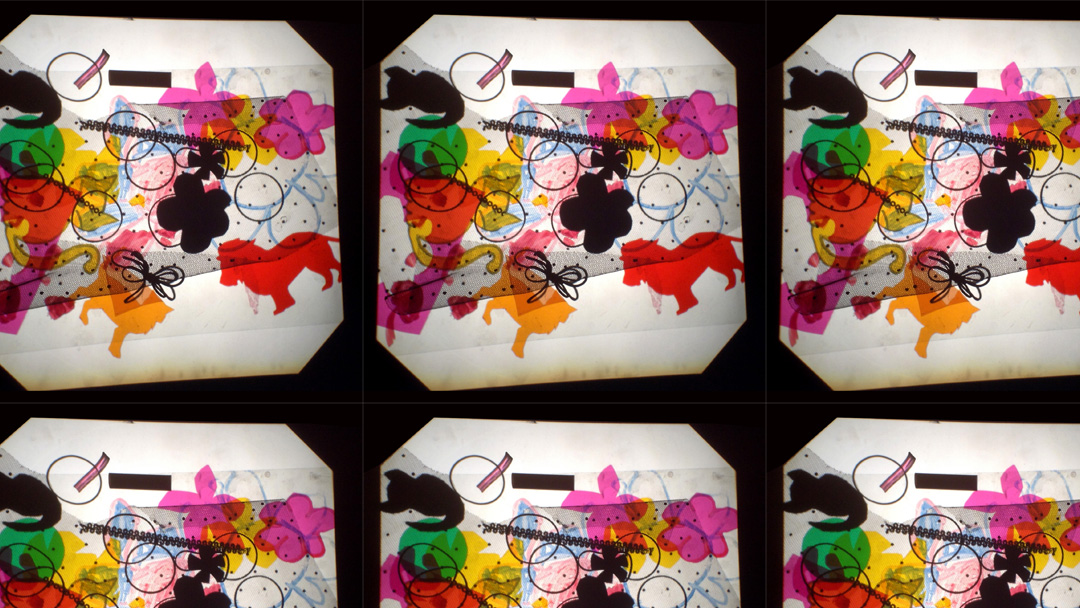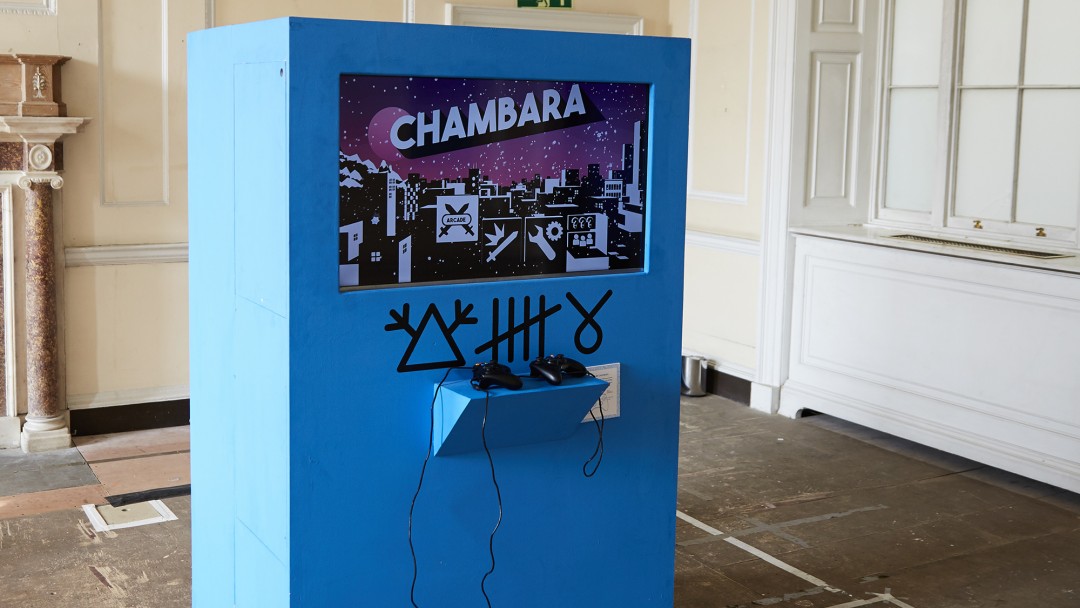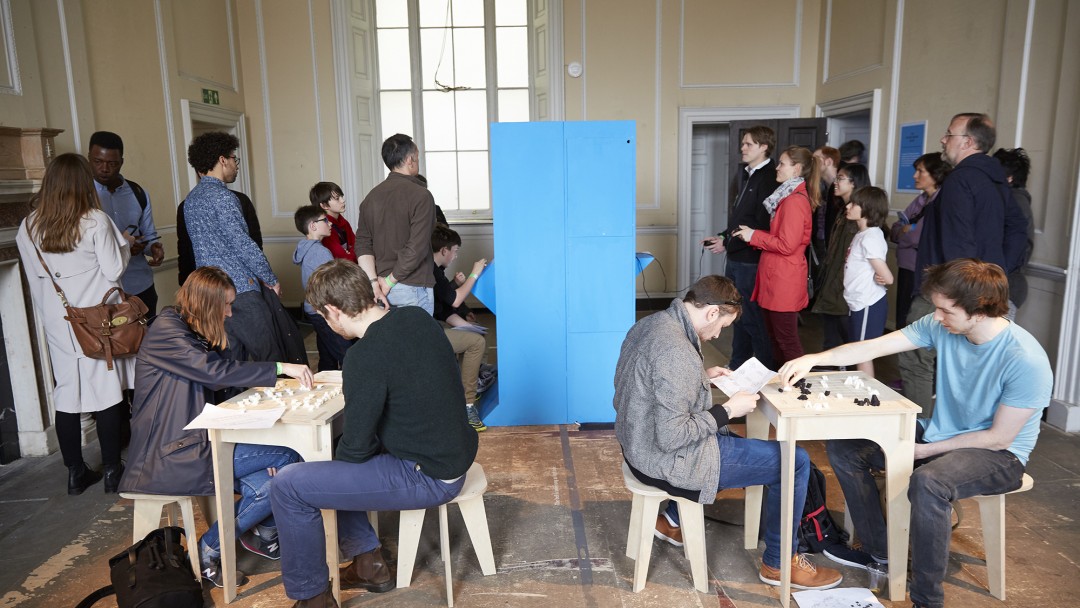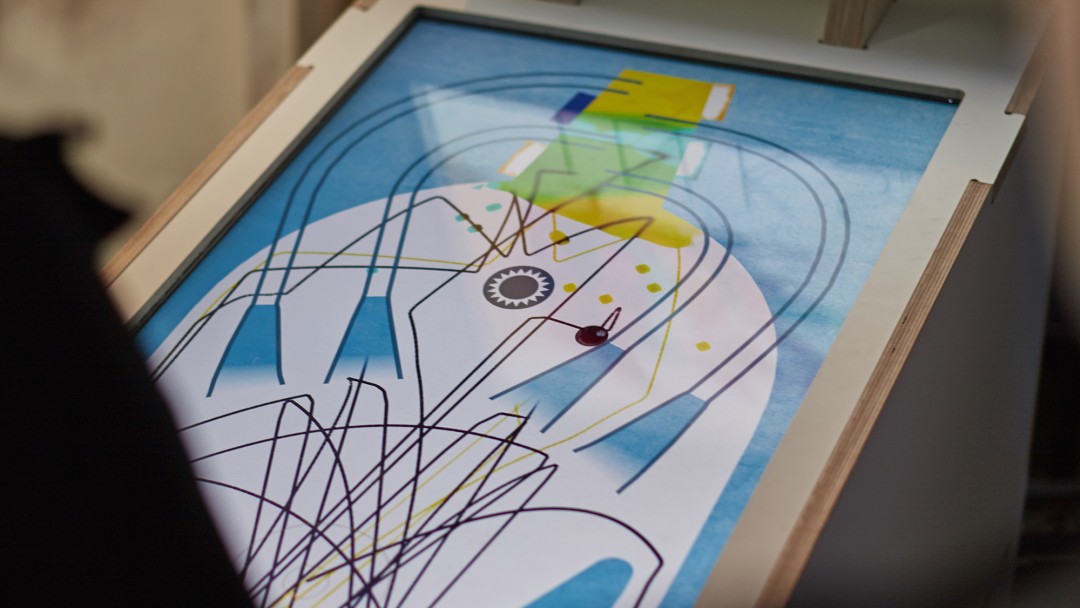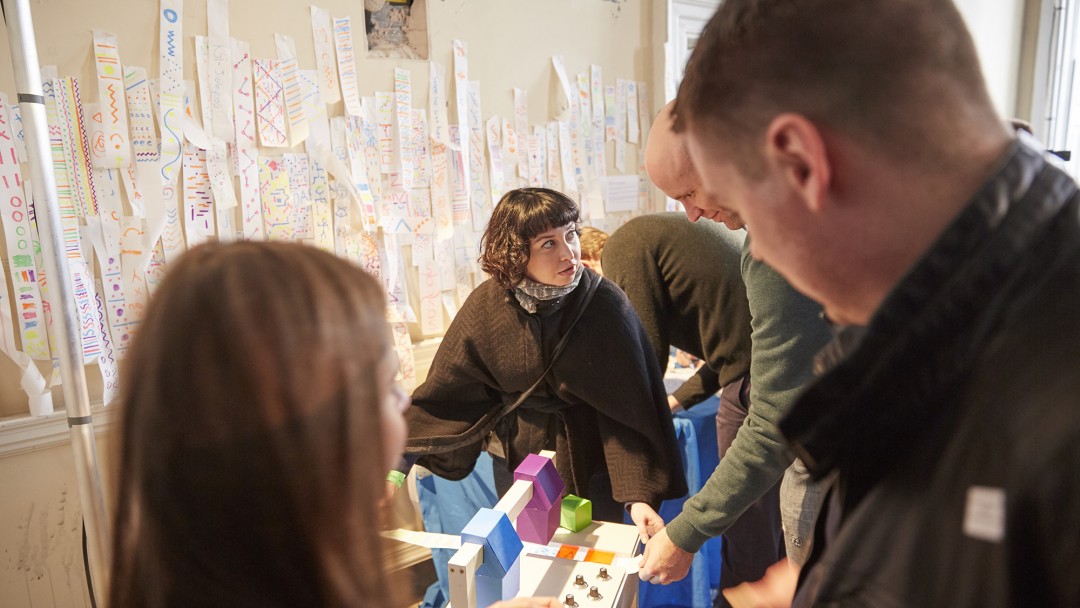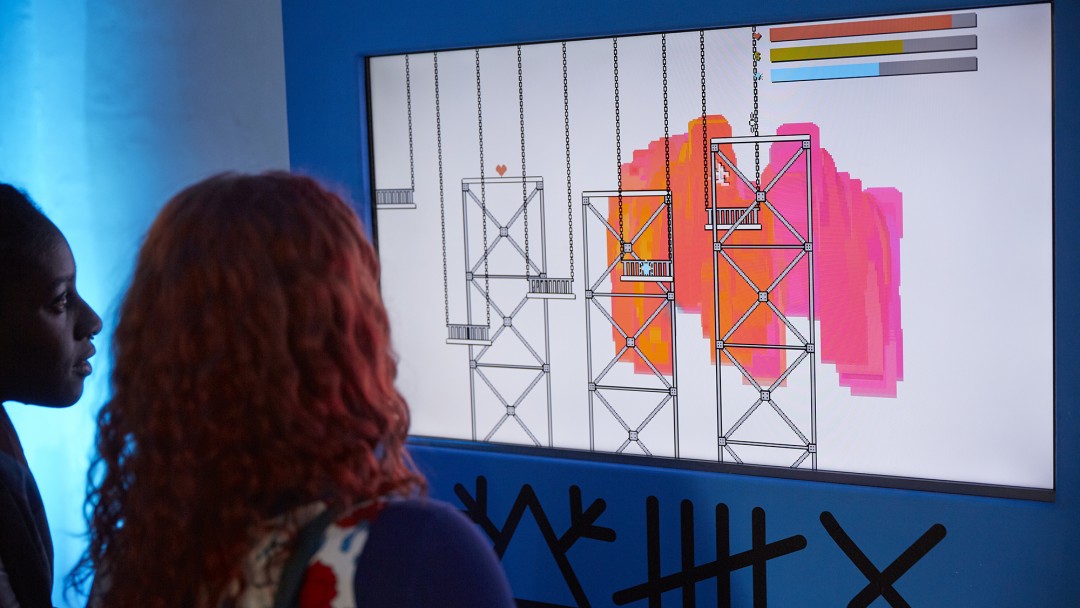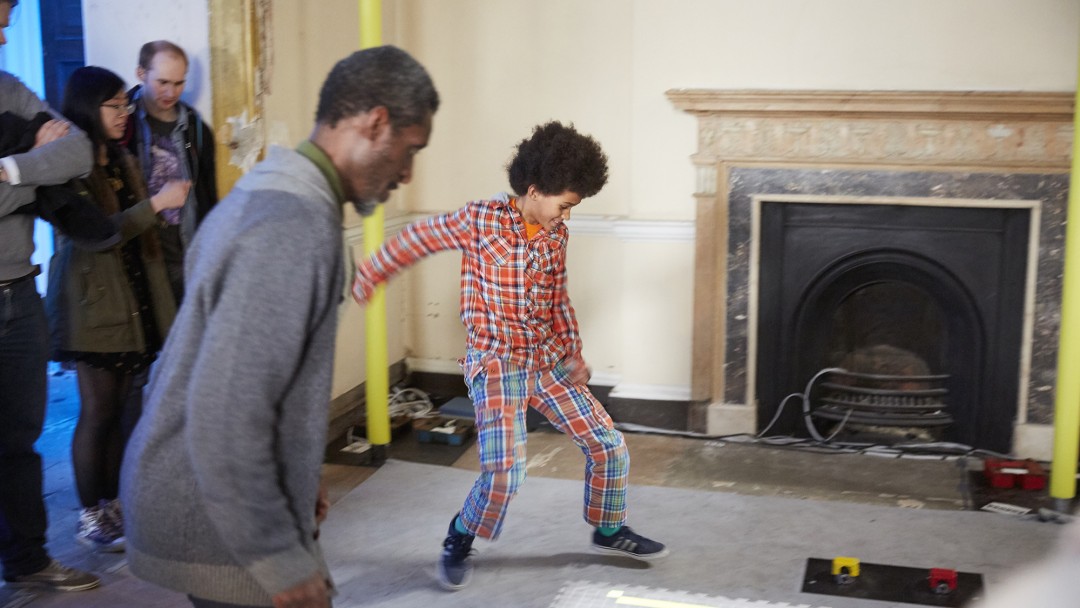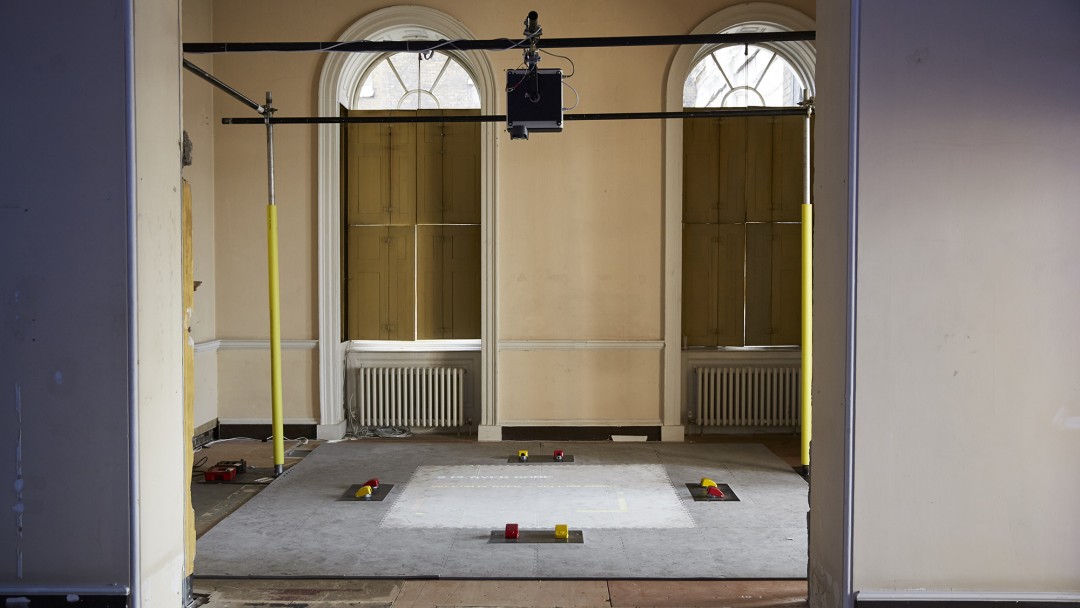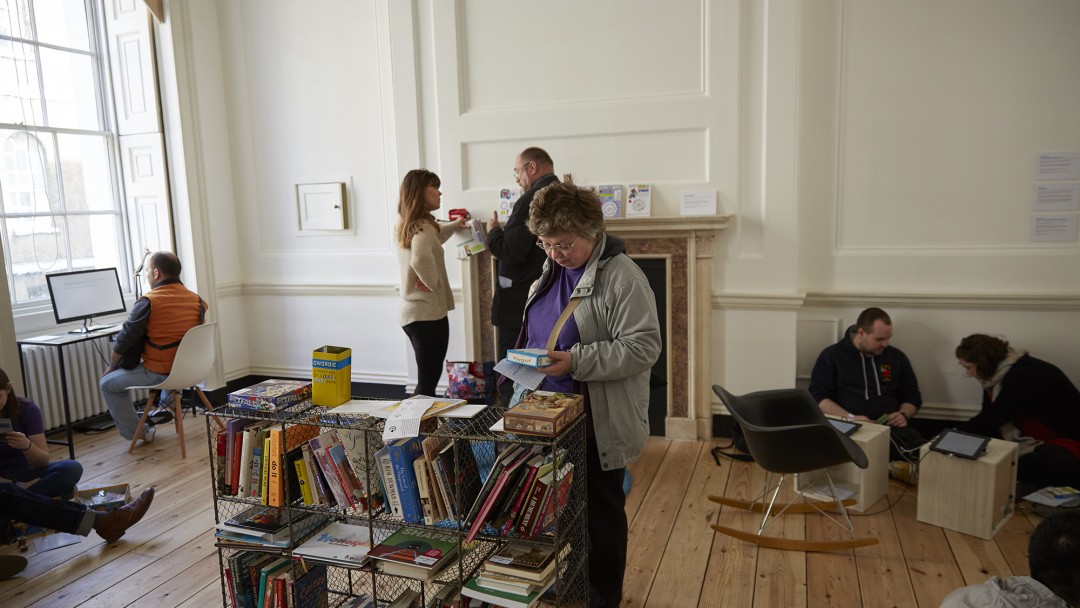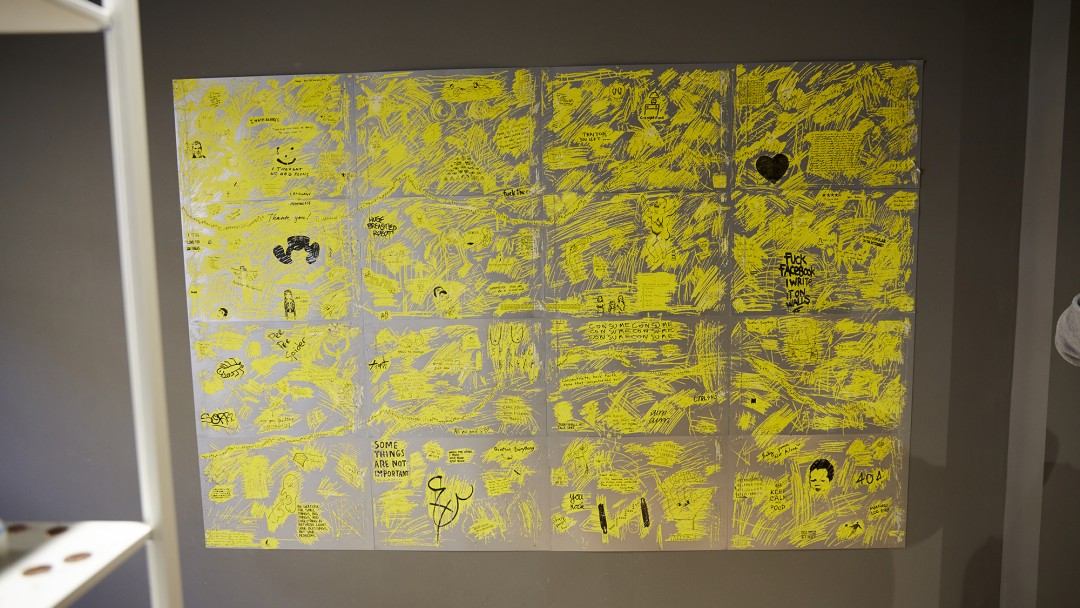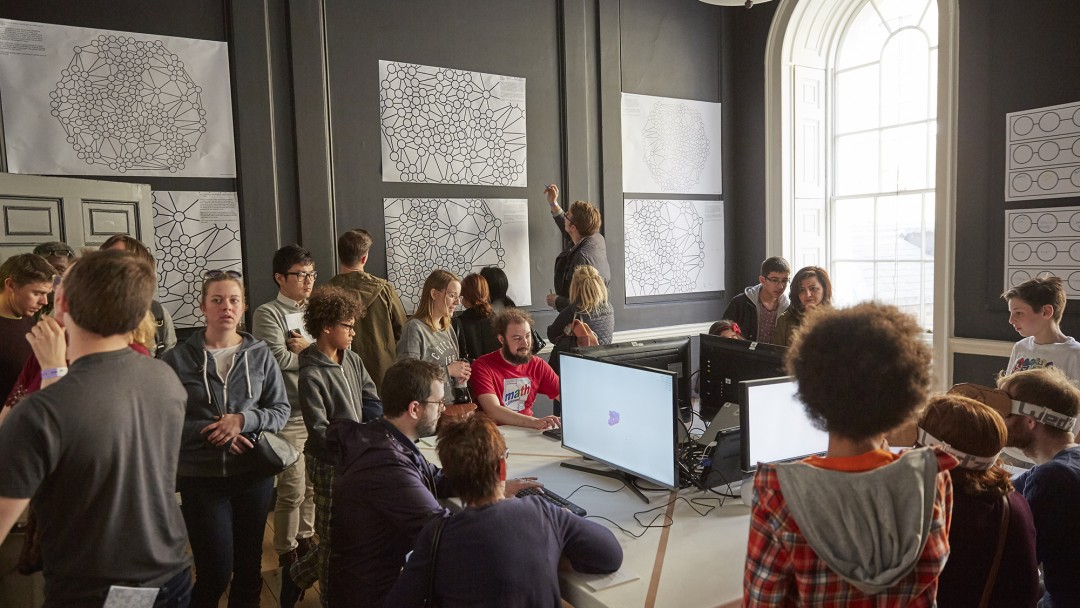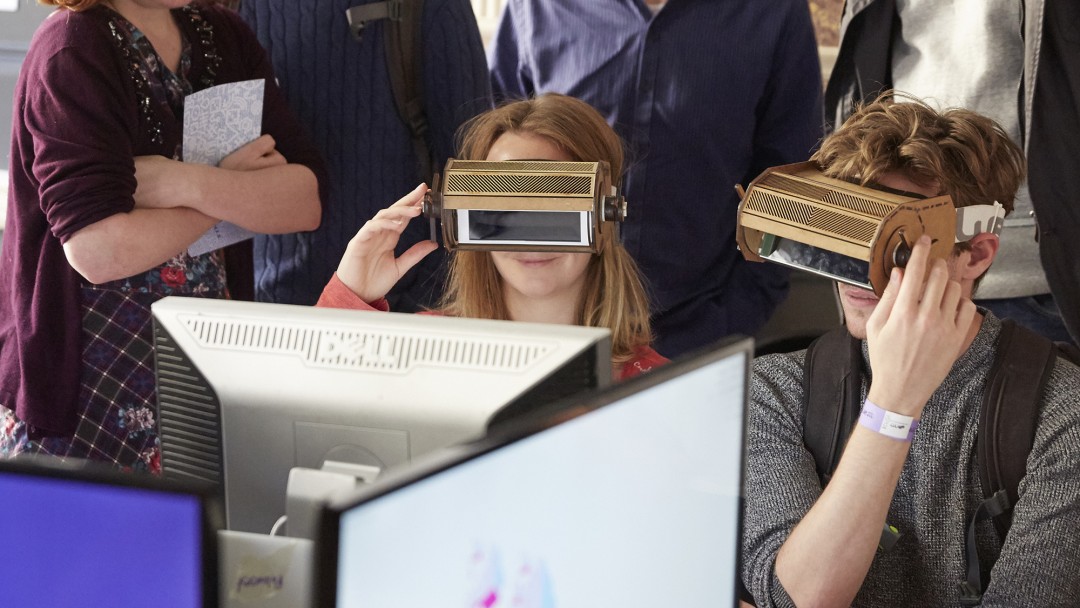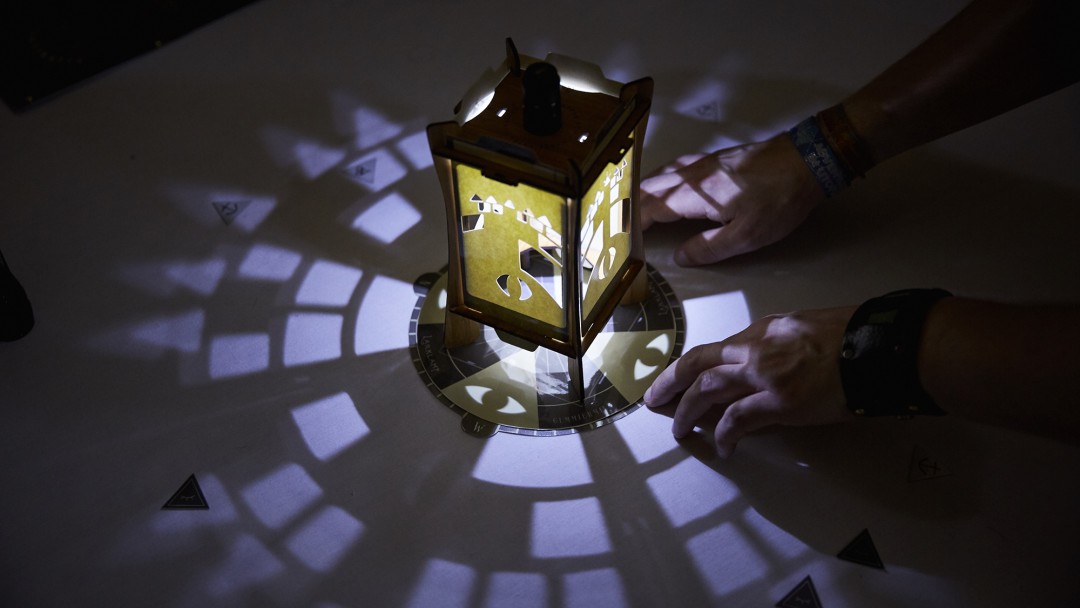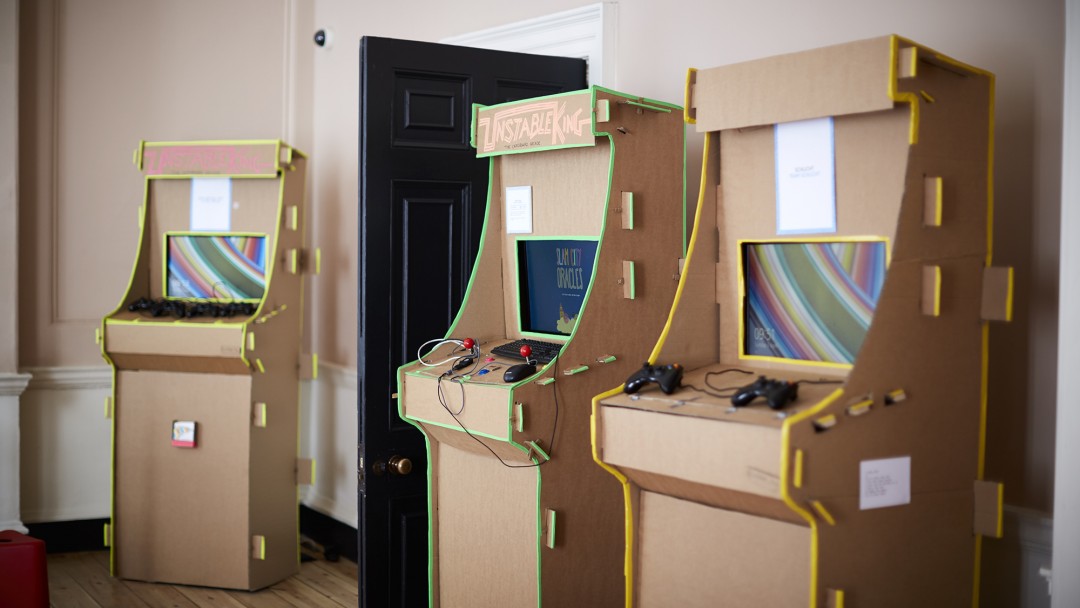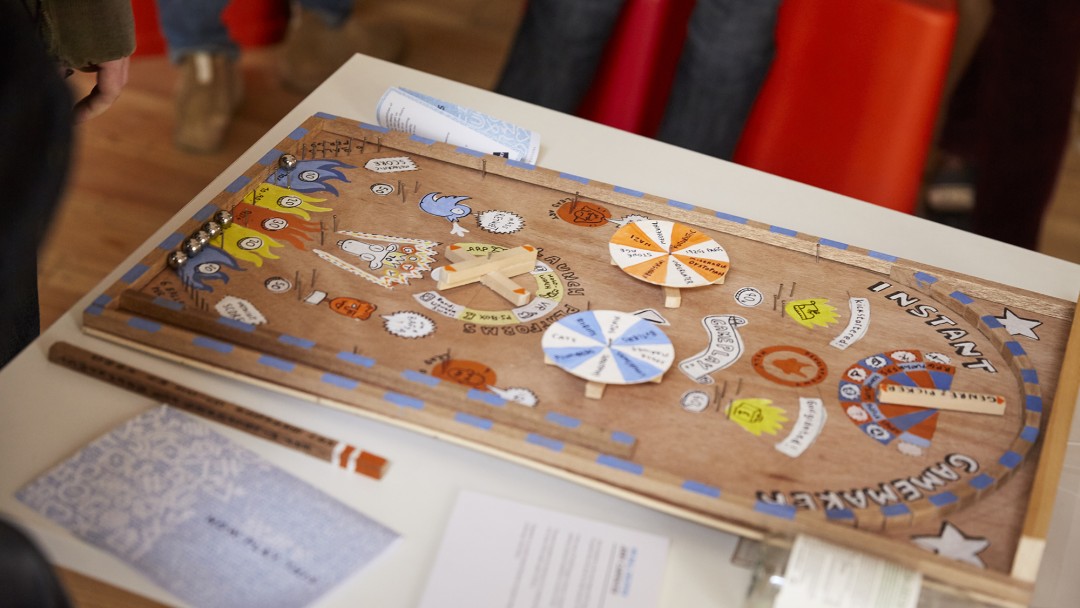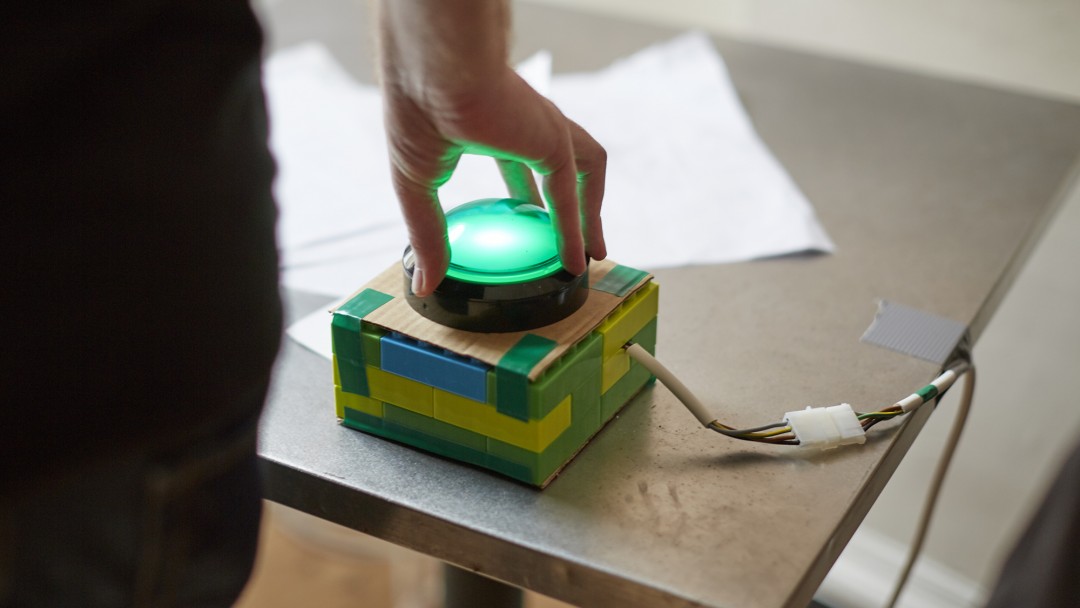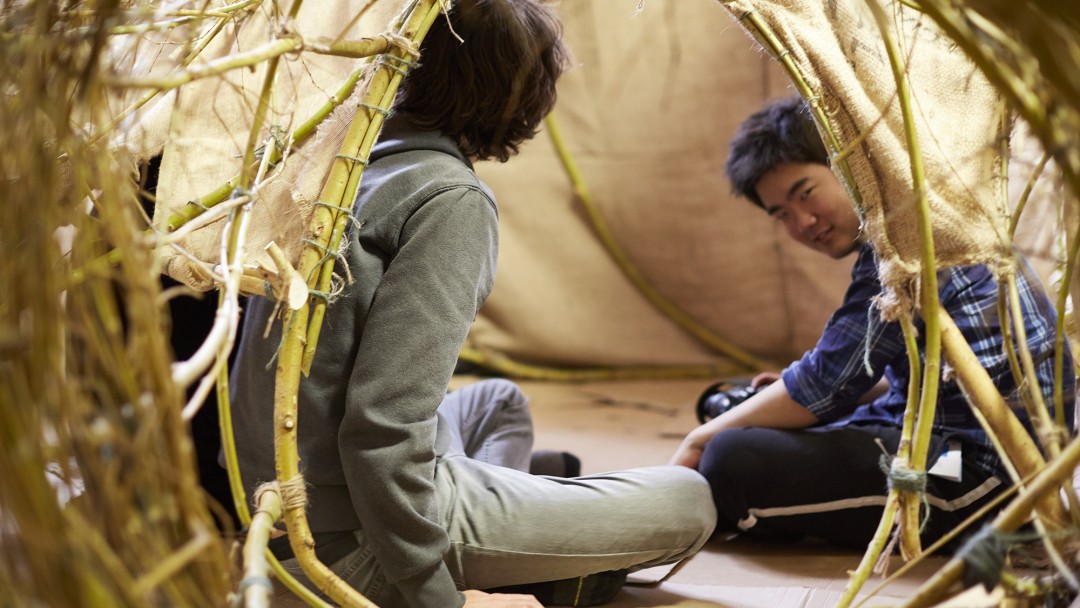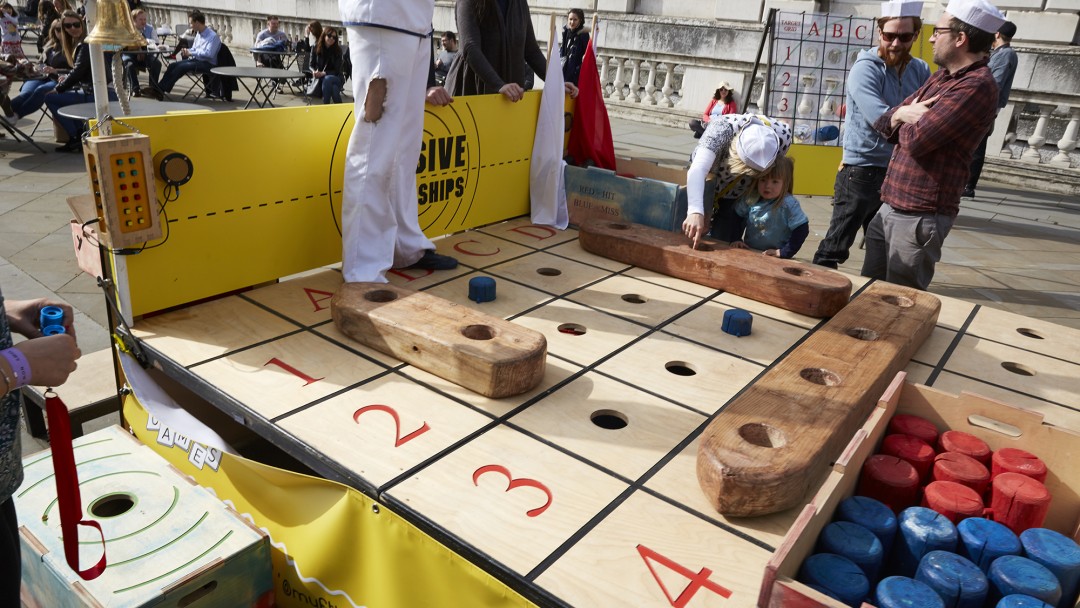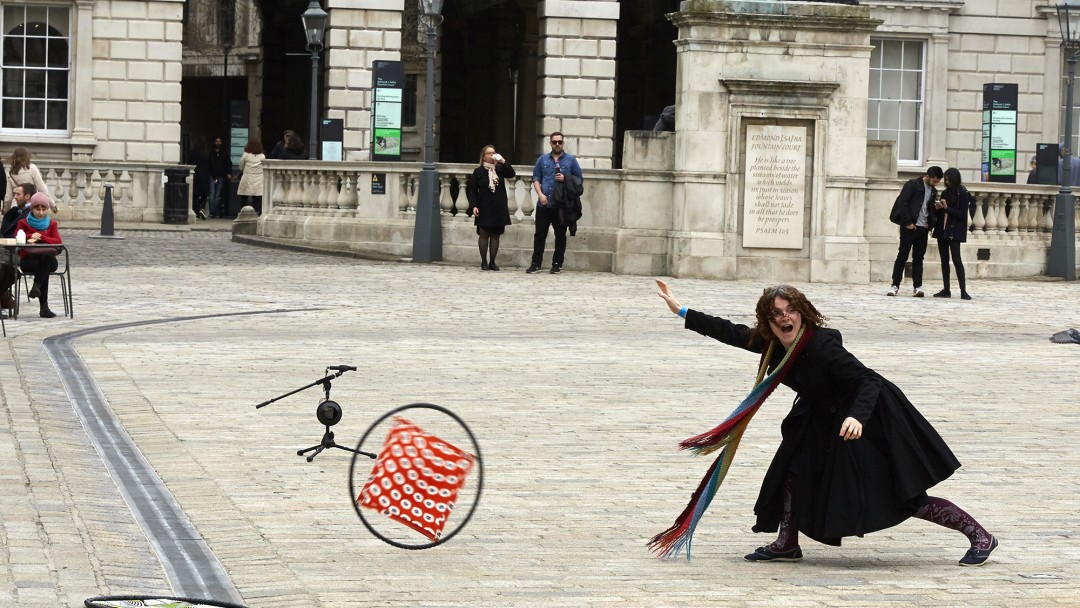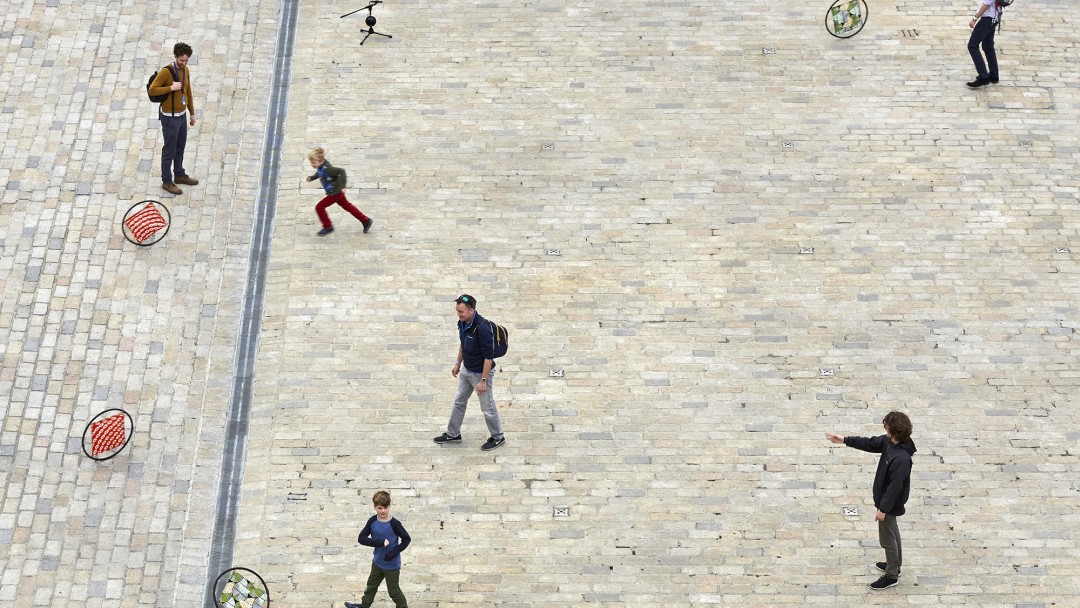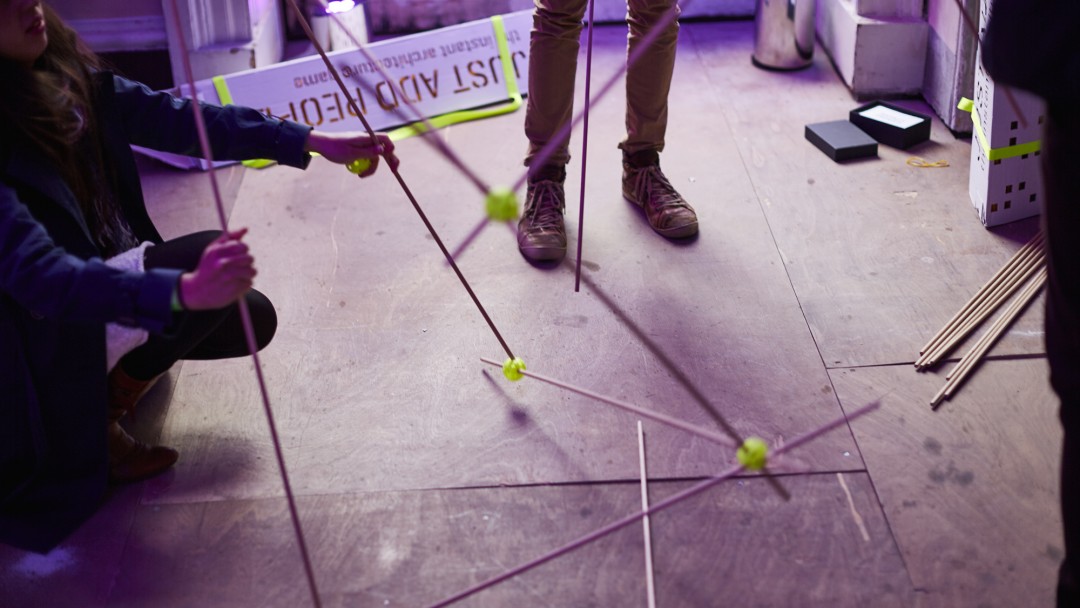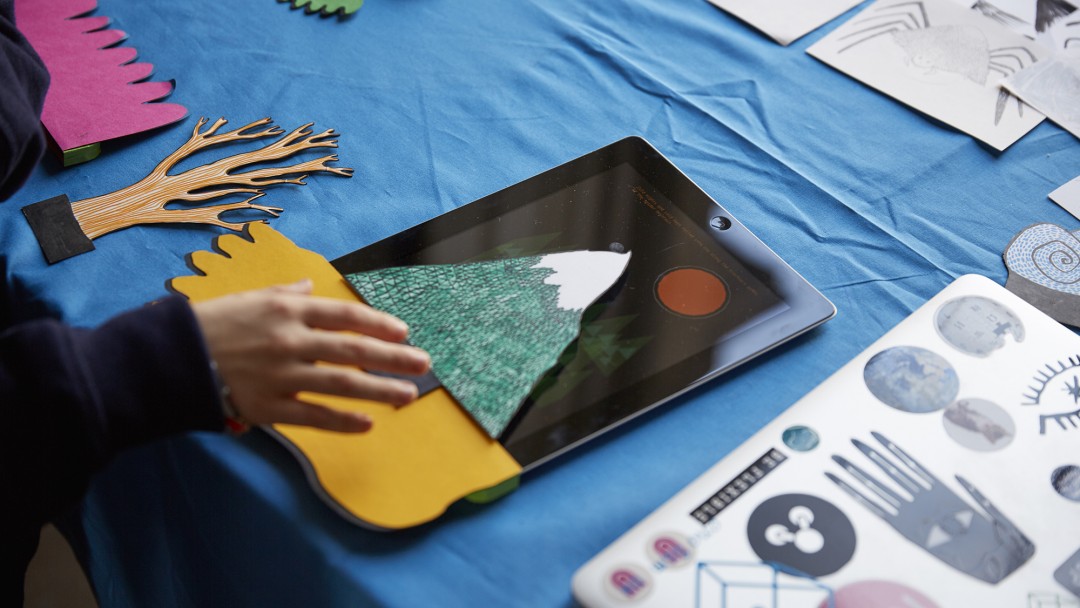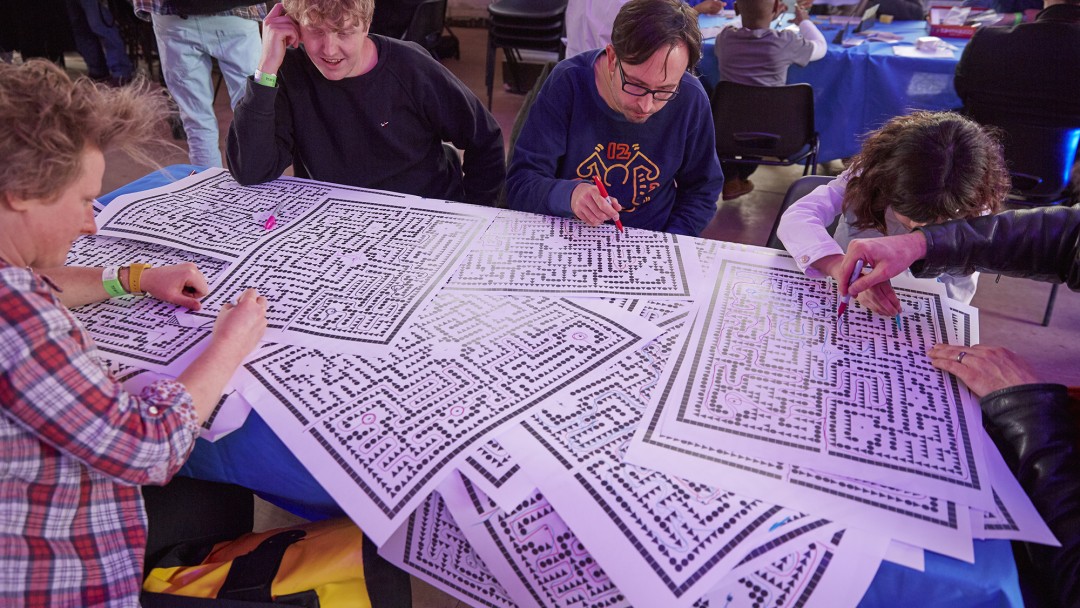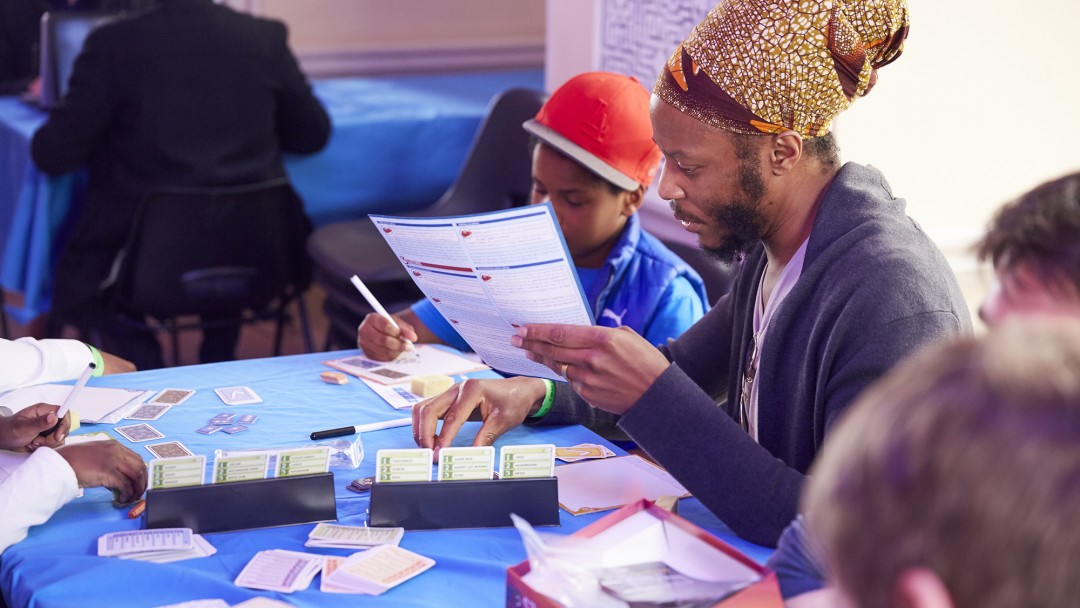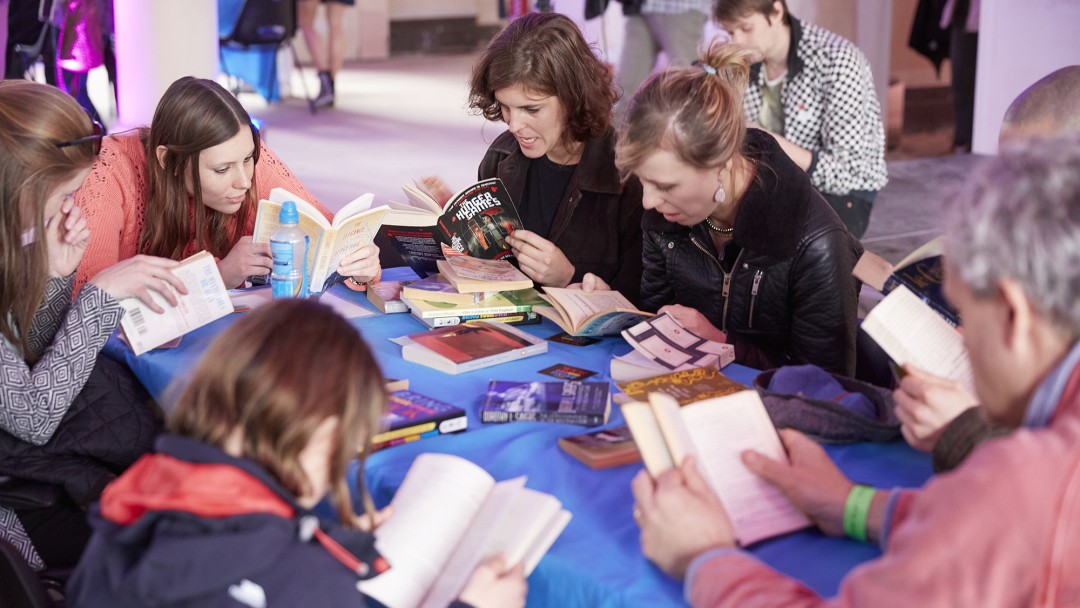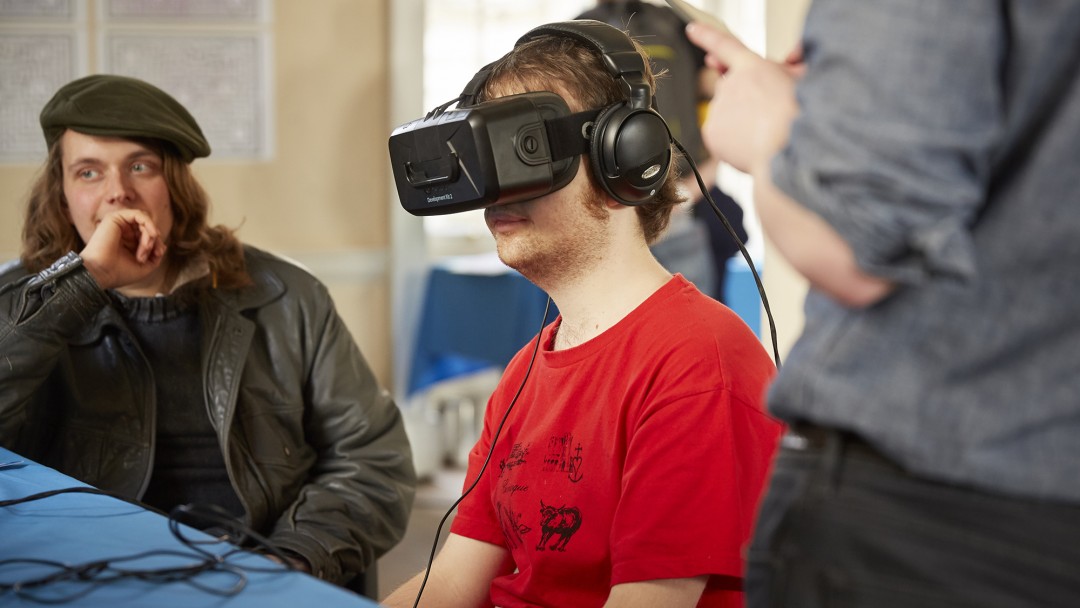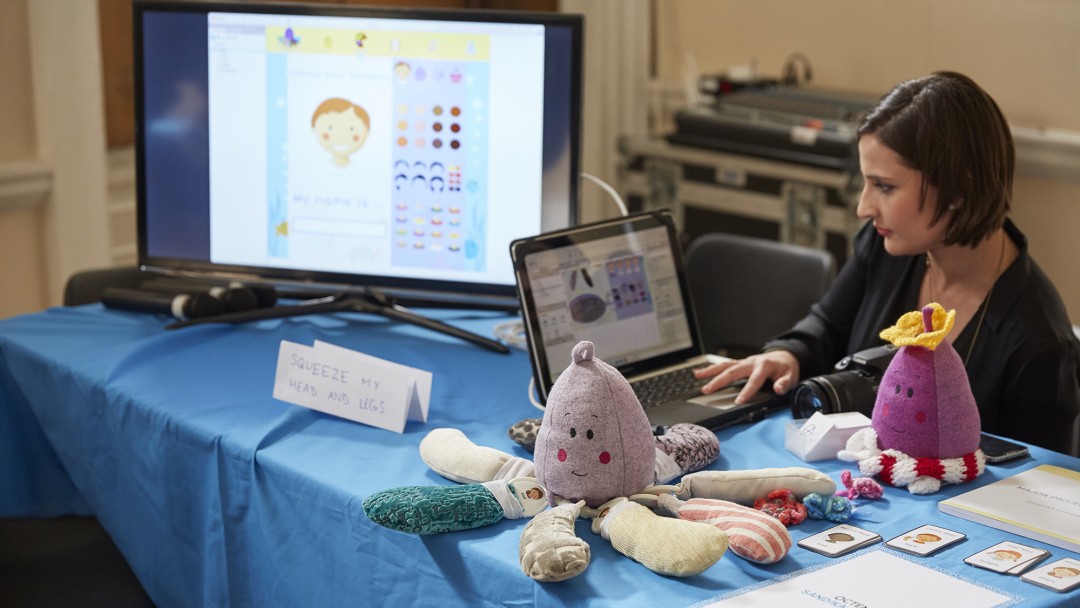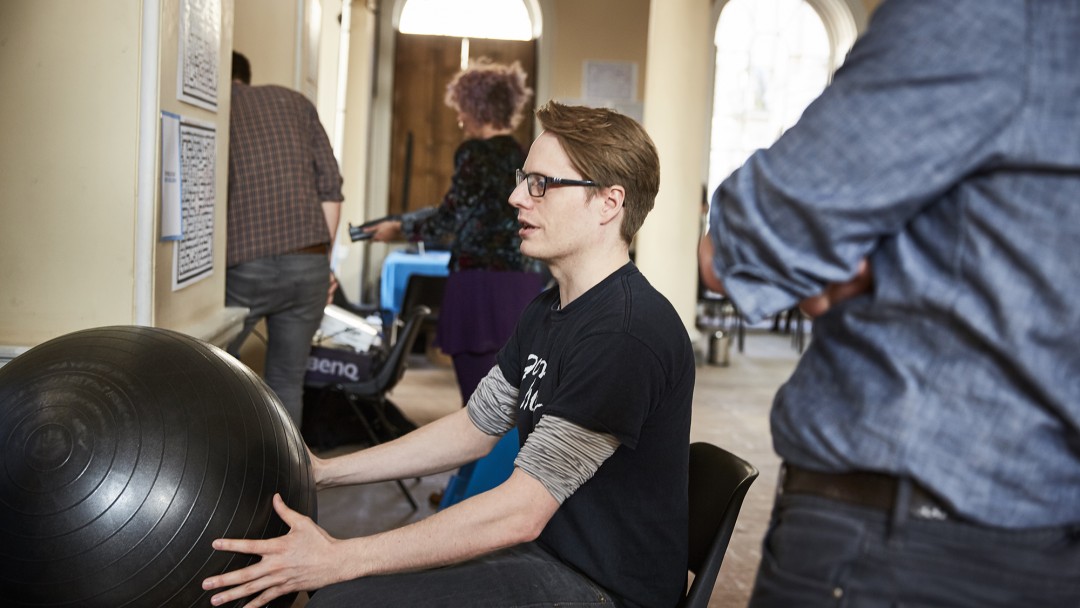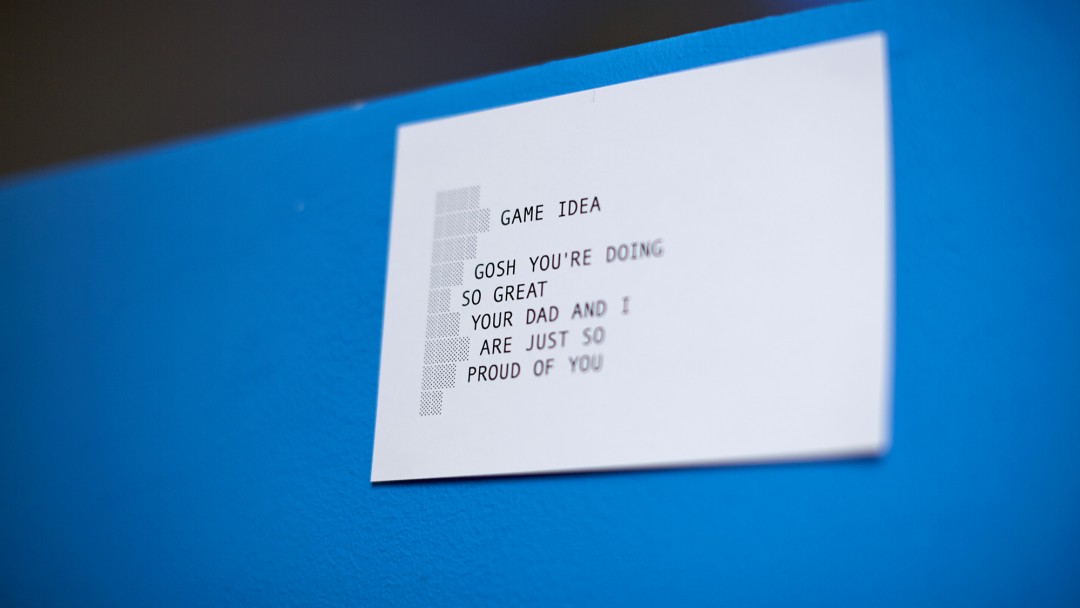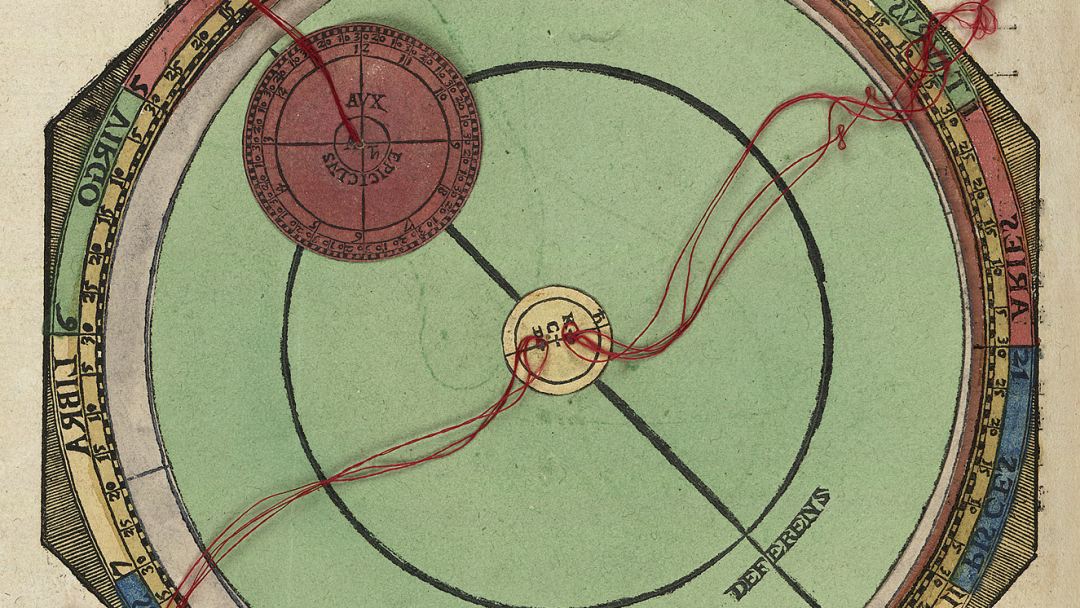We’re always interested in running games for events – whether that’s a new commission to fit a particular brief, or one of our existing games that suits your event.
Some of our existing games that are particularly suited to running at events, and which can be easily tailored to a particular environment, include:
Manifesto! (2015-16). A live manifesto-building game for 2 to 8 players at a time. Teams (often drawn from passers-by) take part in frantic three-minute rounds, trying to agree on a manifesto that they can all stand behind. They arrange and rearrange a set of predefined words and sentences, before presenting it to an audience for voting. Suitable for adults and older children. Made for Frequency Festival, also shown at Beta Public and Game On!
The Light Machine (2015-16). A game that invites players to make pictures with light. Players draw a card from a deck which gives them a prompt for a picture, then they create an image using cutouts, shapes, household objects and more. When they’re finished, they take this image to an overhead projector, and project it onto a wall and – if they choose – themselves. Suitable for all ages. Made for the Barbican’s Serious Play weekend, also shown for Discover Story Centre.
The Racing Line (2015). A live drawing game for two players. Players place their marker pens on one end of a two-metre drawing track – then frantically race towards the other end without taking their marker off the page. Different obstacles in the way challenge them to answer questions and draw images on the way. Suitable for adults. Made for Here London.
